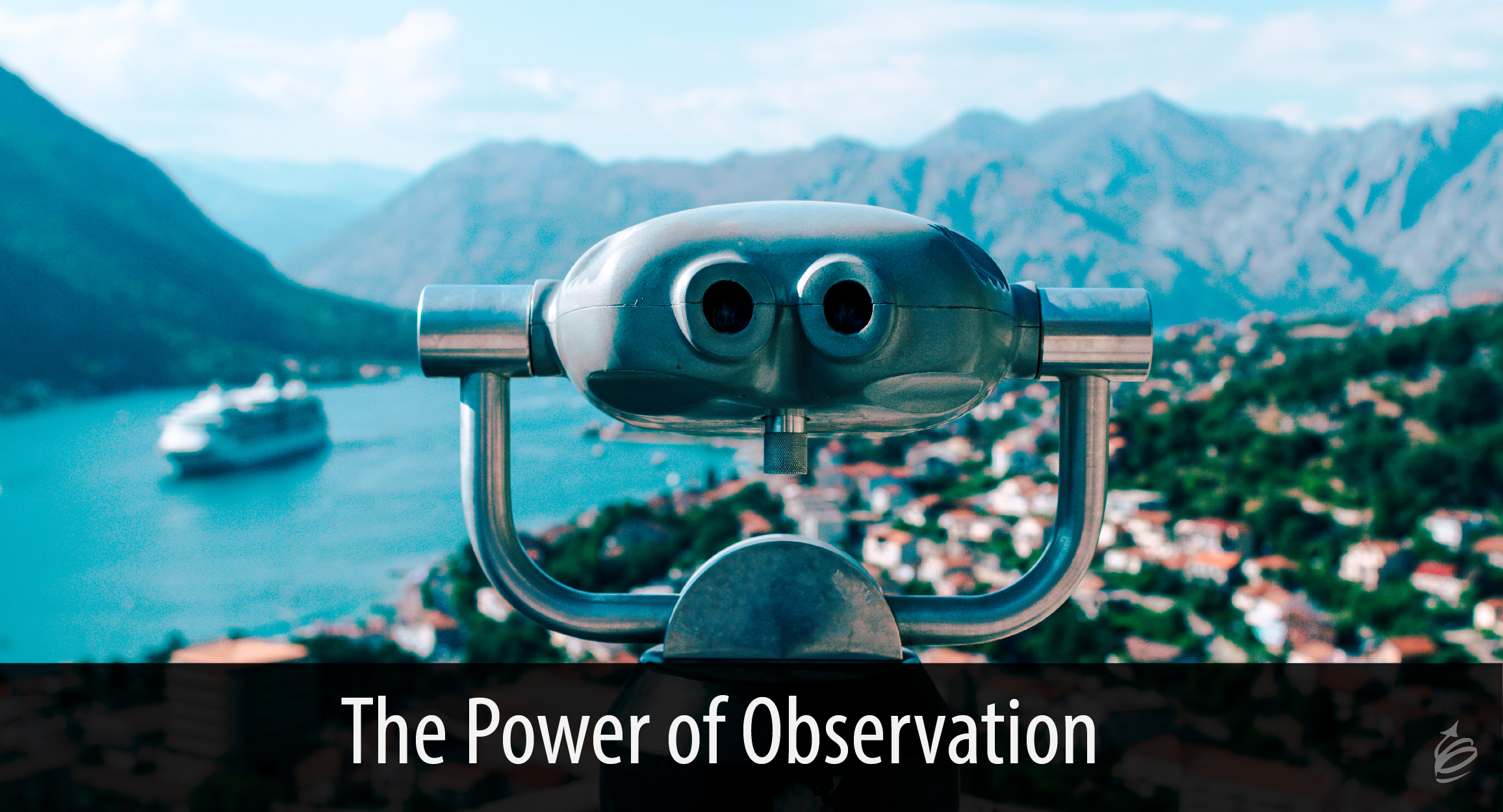“Chance favors a prepared mind.” The quote from Louis Pasteur is well known, but it is incomplete. The full thought is Where observation is concerned, chance favors the prepared mind. While the first statement is helpful, the full statement makes the power of observation far clearer. When we use the power of observation intentionally and effectively, we can learn and lead far more effectively.
The question is, how do I use this power? How can I become more observant?
I have six steps you can take to become more observant, to help you gain, find, and grasp the opportunities that swirl around us every day.
Be Open
Before observations can be made, we must be open to receive them. This starts with a positive belief that there are things we can learn and learn from all around us. As a young man, a mentor told me, “I believe I can learn something from everyone.” With that belief, he was ready to observe something helpful. When we start with this belief, we have a chance; if we don’t, the odds that the rest of these ideas will work go way down.
Be Intentional
We never know what we might observe and learn. Yet, by being open, we are preparing for the learning possibilities. But we must also be intentional. Know what your learning goals and questions are, and be intentional in finding what you are looking for. For example, if you are wanting to be a better coach, what are you seeing in the world around you that can help you be a better coach? Or avoid mistakes? If you are intentional about looking, you will find the lessons you seek.
Be Looking
Once you are mentally ready, you must be looking. This means paying attention; keeping your eyes open and noticing what others do and say and how they respond to you and others. But while the word “observation” implies vision, there is more to it than that . . .
Be Multi-sensory
To be fully observant means using more than just our eyes. We can observe with our ears and with our hearts; and depending on what you are wanting to learn, perhaps your nose and your fingers. True observation is a multi-sensory experience. What did someone say, but also how they looked and how they sounded plays a part in a message, doesn’t it? Think 360° and multi-sensory to get the most power and nuance from an experience. That allows for deeper understanding and greater insights from any situation.
Be Still
It is hard to be observant when you are in your own head, or with your nose buried in a phone or laptop. To observe requires us to stop, to look, to listen, and to be grateful for the experiences around us. Without stillness, much of the power of observation will be removed. You will miss much, and only skim the surface of some other things you do observe.
Be Aware of Your Filters
While we must be intentional and be looking for the ideas we need, we must be aware of our filter, because if the filter is wrong, we will miss or misread what we are seeing. If you have a filter on a water supply, the pore size of the filter medium will determine what will get through, and what will not. Similarly, we have filters in our brains based on past experience, beliefs, habits, and more. Often, we need to change our filter to let more through for us to find the lessons we most need for growth, learning, and change.
Why for Leaders?
Observation is a powerful tool for learning for all of us; but as a leader, it is perhaps even more important. As a leader, we need to be aware of how individual team members are doing and their level of energy and engagement. We must also monitor the dynamics of the team and more. Just one simple example is to observe how people behave and communicate – if we make those consistent observations and have a model to compare to, we can communicate and build greater trust with the wide variety of individuals we lead (If you are looking for such a model, consider starting with our free DISC assessment). We can’t do all of this with a dashboard or numbers, we must be looking, noticing, asking, and being aware to spot trends, learn more, and lead more effectively.
Pasteur was right – Where observation is concerned, chance favors the prepared mind. Observations lead to opportunities of all sorts, but it starts with a clear picture of how to be more observant more often.


Awesome Content.
As a leader, we need to be aware of how individual team members are doing and their level of energy and engagement.
I agree